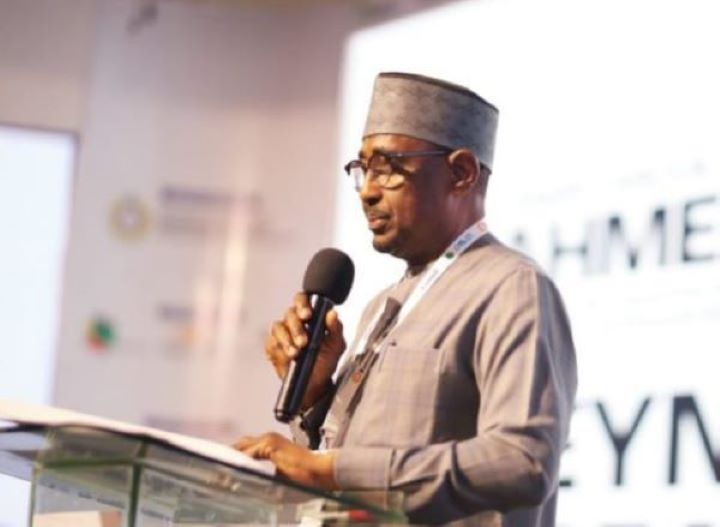Farouk Ahmed, Chief Executive, NMDPRA
-Felix Douglas
The Chief Executive of the Nigerian Midstream and Downstream Petroleum Regulatory Authority (NMDPRA), Farouk Ahmed, made it known in Lagos at the OTL Africa Downstream Energy Week that petrol consumption dropped to 4.5 million litres following removal of subsidies by President Bola Tinubu.
Farouk stated further that Nigeria’s daily petrol consumption is hovering around 45 million and 50 million litres whereas demand has increased as the yuletide approaches.
According to the NMDPRA boss the consumption figures may drop after the yuletide when there would be less demand for petrol because of the high cost.
“The current volume that goes out in the market is ranging between 45 and 50 million litres, including the buffer that we have; but currently it’s ranging between 45 and 50 million litres per day. We see that a lot of activity is going on now because it is normally a high demand period in the fourth quarter leading to the yuletide but after that, we can possibly see the consumption go down just because of the prices,“ he said.
However, the new price would help in reducing fuel smuggling across the borders which has been the bane of the industry by unscrupulous people taking advantage of situations.
“Another thing is we are hoping that this price adjustment or liberalisation of the industry will now discourage cross-border (smuggling) because there will be less incentive to go cross-border, and that means that the product will remain within the country. We can see now the level between real supply and actual demand in the market,” he explained.
Farouk pointed out that NMDPRA will no longer dictates the price because the market is fully liberalised following its deregulation.
“Our own is to provide a free market for all players. We are overseeing the market generally to ensure that all the players conform to the regulations as far as enshrined in the Petroleum Industry Act.
“So, the reason you see prices moving is because the market is basically free to move. And if you recall, even the international market for both gasoline and crude oil, which drive the product market has been very volatile because of the activities in the Middle East. So, generally speaking, the market is free to demand and supply,” he stated.
Farouk said Nigeria’s downstream oil and gas sector is also experiencing transformation into an attractive investment destination through recent bold reforms introduced by the government.
“With policy support from President’s Special Advisors on Energy and Ministers for Petroleum Resources, the Nigerian oil industry is set to achieve ambitious targets of daily crude oil production rate of 3 million barrels.
The country is also hopeful of increasing domestic gas utilization to 10 billion standard cubic feet per day (BSCF/D), and expanded refining capacity that will position Nigeria as a net exporter of petroleum products.”
The Authority boss revealed that there has been significant progress in the last one year, with notable reforms aimed at streamlining regulatory frameworks and enhancing ease of compliance.


Comment here